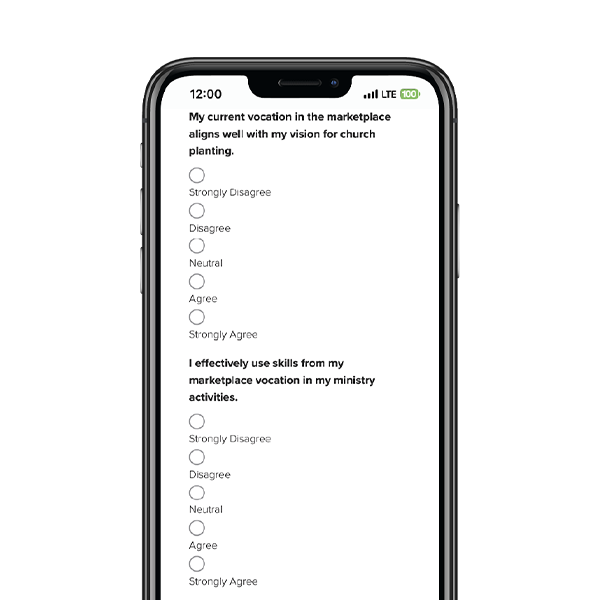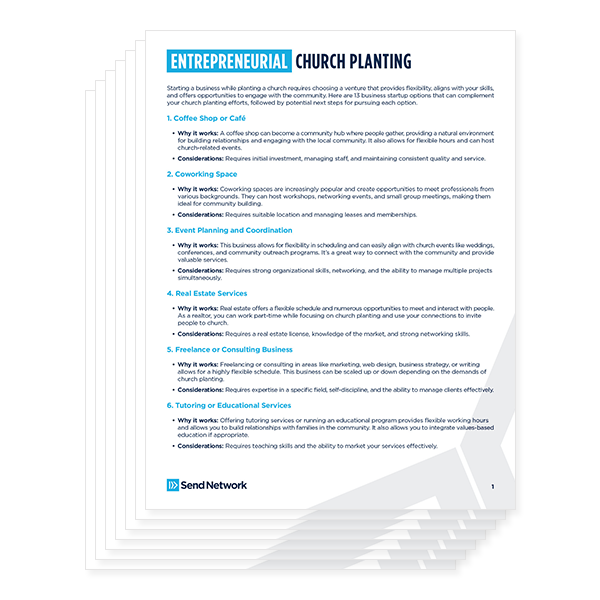Most church planters consider “money” a four letter word! And, in a cents, it is! But without C-A-S-H, a church plant will be in trouble.
Regardless of the planting model, money is crucial in birthing a new congregation. Babies cost a lot of money, and a new baby church will definitely cry out for her financial needs to be met. Church planters must pay careful attention to raising and stewarding money well, so they can engage their city well and demonstrate integrity to the watching world.
As I coach church planters in The Salt Network, I encourage them to embrace these three principles:
1. The most important financial partner in any church plant is the planter! Church planting is about making disciples, and Jesus made it clear that disciples will be like their teacher. Therefore, a planter’s financial habits will be reflected in his church plant. If hard work, stewardship, and generosity are not strengths for the leader, they will never be strengths for the church. A leader can only call people to the places they are currently living.
Examine the planter:
- Does he work hard? Jesus said, “A worker is worthy of his wages.” The planter must be a worthy laborer.
- Does he sacrifice for the kingdom? The planter must demonstrate that he personally denies himself for the sake of kingdom expansion.
- Is he generous? The planter must display’s God’s generosity in his personal life, in order to inspire and challenge others to do so.
2. Make sure the core team is fully “bought” in. The first 50 people to join the church will set the trajectory of the church. If those initial members are not committed to giving generously, then the church will struggle to create a culture of generosity. Everyone wants to be a part of something new; not everyone wants to fund something new. Make sure to draw a line between an attender and a member. We plant churches to reach people far from God, but church members should only be those who are fully “bought in” to what the church is about.
Equip the core team:
- Create a culture of real accountability. The planter should lead the church by demonstrating transparency and submission to others, particularly with finances.
- Expect and inspect. The planter should communicate clear giving expectations to members and have direct conversations about their giving.
- Celebrate generosity. The planter should celebrate those who make generosity a vital part of their lives.
3. A clear and compelling vision inspires others to invest. God’s people want to see Him do amazing things in our culture. They are tired of the church falling behind in almost every way. They are eager to invest when presented a clear and compelling vision to reach the lost, grow disciples, and send laborers into the harvest!
Share the vision boldly and broadly:
- Specific vision. The planter should be clear about the specific people or place he hopes to reach and share compelling stories of the people whose lives are being affected.
- Ask people for money. The planter should be clear with potential donors that he wants to share the church’s vision with them in hopes they will be motivated to give money to support the important work.
- Ask for significant gifts. The planter should boldly go after large gifts, remembering that in most organizations, 20% of the people give 80% of the resources.
- Build relationship through communication and gratitude. The planter should build relationships with financial partners through regular communication and gratitude, inviting them to pray for and celebrate God’s work accomplished together!
Leadership matters in church planting. Money matters in church planting. Planters must prioritize solid financial leadership if they hope to multiply disciples and churches. Yes, we know that nothing eternally significant happens apart from God’s hand and blessing. We also know, however, that God has called us to “do the work of ministry.”
I pray for more planters who are consumed with kingdom multiplication, demonstrate sacrificial generosity, and are making disciples who do the same.
Published July 3, 2018




